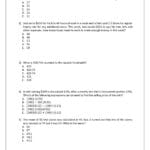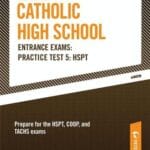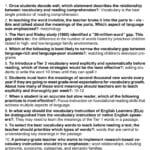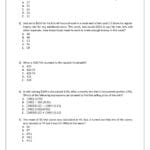Ready to ace the 2024 PTCB exam and launch your pharmacy technician career? This comprehensive guide provides proven study strategies, free practice resources, and expert insights to help you succeed on your first try. Whether you’re just starting your PTCB journey or need a final push, this is your one-stop resource for exam mastery.
Ace Your PTCB Exam with Free Practice Tests
So, you’re aiming for a career as a Certified Pharmacy Technician? That’s fantastic! The PTCB exam is a significant step, but don’t worry, we’re here to help you conquer it. One of the most effective preparation tools is the free PTCB practice test. Think of it as your secret weapon for familiarizing yourself with the exam format, identifying your weak spots, and boosting your confidence.
Free practice tests are meticulously designed to mirror the real exam experience. They’re not just busy work; they’re a vital step toward understanding the question types, the wording, and the overall feel of the PTCB exam.
Why Free Practice Tests Are Essential
Here’s a breakdown of why these free resources are invaluable:
- Demystify the Exam Format: Practice tests act as a dress rehearsal, eliminating surprises on test day. You’ll become familiar with the style of questions, the wording used, and the overall flow of the exam.
- Pinpoint Your Weaknesses: Practice tests help you identify areas where you excel and areas where you need more focus. This personalized insight allows you to tailor your study plan for maximum efficiency.
- Build Confidence: The more you practice, the more comfortable and confident you’ll become. Regular practice tests help you reduce pre-test jitters and approach the exam with a positive mindset.
- Master Time Management: The PTCB exam is timed, so effective time management is essential. Practice tests help you develop this crucial skill, ensuring you can answer questions efficiently and complete the exam within the allotted time.
Maximizing Your Practice Test Performance
Here’s how to make the most of your practice sessions:
Step 1: Diversify Your Practice: Don’t rely on a single type of practice test. Seek out various sources and formats to cover all the bases. Some tests might focus on calculations, while others emphasize medical terminology. Variety is key.
Step 2: Simulate Exam Conditions: Always time yourself when taking practice tests. Treat it like the real exam to accurately gauge your pace and identify areas where you might need to speed up.
Step 3: Review In-Depth: Don’t just check your answers; analyze them. Understand why an answer is correct or incorrect. This is where the real learning happens! Utilize detailed explanations provided with many practice tests.
Step 4: Practice Consistently: One practice test isn’t enough. Regular practice with diverse questions reinforces your knowledge and helps you identify any lingering weak spots. Consistency is the key to success.
Expanding Your Prep Toolkit
Practice tests are excellent, but they’re not the only tool in your arsenal. Here are some other resources to boost your preparation:
| Resource | Benefit |
|---|---|
| Personal Fitness Merit Badge Workbook | Provides valuable resources and guidance for your fitness journey, which can help with stress management during exam preparation. |
| Personal Fitness Merit Badge Worksheet | Offers practical exercises and assessments to track your fitness progress, promoting overall well-being during your studies. |
| Study Guides | Offers in-depth explanations and helps you understand the underlying concepts. |
| Flashcards | Ideal for memorizing key terms, drug names, and other important information. |
| Online Courses | Provide structured learning with video lectures, quizzes, and interactive exercises. |
| Study Groups | Connect with other aspiring pharmacy technicians for support and collaborative learning. |
Test Day Strategies for Success
Here are some tips to keep you calm and focused on exam day:
- Regular Practice: Consistent practice is the best way to reduce test anxiety and build confidence.
- Adequate Sleep: A well-rested mind performs better. Ensure you get enough sleep the night before the exam.
- Nutritious Meal: Fuel your brain with a healthy meal before heading to the testing center.
- Strategic Breaks: If you feel overwhelmed during the exam, take a deep breath and a short break to regroup.
Strategize Your PTCB Exam Preparation
Preparing for the PTCB exam is a journey, not a sprint. A well-structured study plan is your roadmap to success. This section details how to use practice tests effectively, create a personalized study plan, and leverage powerful learning strategies.
Practice Tests: Your Secret Weapon
Practice tests are like dress rehearsals, allowing you to experience the exam format, question types, and time constraints. Both free and premium practice tests are valuable. They help you identify your weak areas and reinforce what you’ve learned. The more you practice, the more at ease you’ll be with the computerized testing format.
Free Resources: Your Starting Point
A wealth of free PTCB practice resources are available online. Websites provide practice questions, targeted quizzes, and even full-length study guides. Many include detailed answer explanations, emphasizing understanding over rote memorization.
Crafting a Personalized Study Plan
Effective studying is personal. Your study plan should be tailored to your individual needs and learning style. Start with the 2024 PTCB syllabus – your guide to the exam’s content. Identify your strengths and weaknesses, then create a schedule that fits your life. Short, focused study sessions can be more effective than long, sporadic ones. Incorporate regular review sessions to reinforce learning. Tracking your progress helps maintain motivation and provides a sense of accomplishment.
Decoding the PTCB Exam
Understanding the exam’s structure is crucial. The PTCB exam consists of 90 questions, with 80 scored questions and 10 unscored pilot questions. These pilot questions are for testing purposes and don’t count towards your final score. The exam spans a range of topics, from patient safety and medication knowledge to federal requirements and order processing. Knowing the structure and content helps you develop a strategic study approach.
Study Smarter with Effective Techniques
Effective studying involves more than just reading. Techniques like active recall (testing yourself before looking at the answers) and spaced repetition (reviewing information at increasing intervals) are proven methods for enhancing retention. Flashcards are a classic tool for memorization, and study groups offer a supportive learning environment. Online resources like videos, forums, and interactive modules can add another dimension to your studies.
Diverse Learning Strategies
Embrace a variety of learning styles. Whether you’re a visual learner who thrives on diagrams, an auditory learner who prefers lectures, or a kinesthetic learner who learns by doing, find methods that resonate with you. Some experts suggest that diversifying study methods enhances comprehension and retention.
Navigating Uncertainties
The field of pharmacy is ever-evolving. What’s known today may change tomorrow. Ongoing research continually expands our understanding of medications and best practices. While the PTCB exam focuses on current knowledge, some areas are still under active investigation. This is where critical thinking skills come in. The ability to analyze information, evaluate different perspectives, and adapt to new discoveries is invaluable for any pharmacy technician.
Your Path to PTCB Success
PTCB exam preparation is a marathon. It demands time, effort, and a strategic approach. Equip yourself with the right tools and techniques – practice tests, a personalized study plan, effective study strategies – and you’ll be well-prepared to ace the exam. Believe in yourself, and get ready to launch your successful pharmacy technician career!
Decoding the PTCB Exam: Common Question Types and How to Conquer Them
While predicting the single most common PTCB exam question is impossible (like finding the most popular grain of sand on a beach!), understanding the categories of questions is crucial. This section clarifies common question types, emphasizing the importance of practice tests and offering strategies for maximizing your score.
Practice tests are invaluable, not for memorizing answers (which won’t work since the real exam questions are different), but for grasping the types of questions you’ll encounter. This helps you gauge your strengths and weaknesses, familiarize yourself with the timed test pressure, and build your test-taking stamina.
Maximizing Practice Test Effectiveness:
Step 1: Timed Practice: Always set a timer when taking practice tests to simulate exam conditions and develop pacing skills.
Step 2: Comprehensive Review: Analyze both correct and incorrect answers to reinforce understanding and identify knowledge gaps.
Step 3: Track Your Progress: Monitor your scores on practice tests to track improvement and identify areas needing further attention.
Common Question Categories:
While specific questions are unpredictable, certain topics consistently appear on the PTCB exam. These often include:
- Calculations: Dosage calculations, conversions, dilutions, compounding calculations.
- Pharmacology: Mechanisms of action, drug interactions, side effects, indications, contraindications.
- Law and Ethics: Federal and state regulations, ethical considerations, patient confidentiality.
- Sterile Compounding: Aseptic techniques, preparation of sterile medications.
- Patient Safety and Medication Errors: Error prevention strategies, reporting procedures.
Some experts believe questions on specific drug classes are also likely, while others suggest their frequency is debated. Ongoing research by the PTCB may shift exam focus over time, so staying updated on any announcements is crucial.
Focusing on these key areas significantly increases your chances of success. Practice builds familiarity and comfort with the material and format, boosting your confidence on test day. Remember, knowledge is power, and practice fuels success.
PTCB Exam: 90 Questions to Certification – Your Complete Guide
This section provides a comprehensive understanding of the PTCB exam, from its structure and scoring to essential preparation strategies. Knowing how many questions you need to answer correctly is just the beginning; this guide equips you with the knowledge and tools to achieve your certification goals.
The PTCB exam comprises 90 multiple-choice questions, but only 80 are scored. The remaining 10 are “pre-test” questions that don’t affect your score, serving as trials for future exams. To pass, you need to answer at least 70% of the 80 scored questions correctly. That’s 56 questions.
While the PTCB doesn’t disclose the exact number of questions from each subject area needed to pass, this encourages comprehensive study across all topics outlined in the syllabus. It’s similar to studying for a history exam – you know the general periods, but not the specific dates that will be tested. This approach fosters a broader understanding, which is ultimately beneficial for a well-rounded pharmacy technician.
There’s no penalty for incorrect answers, so educated guesses are encouraged. Some test-taking strategies suggest guessing when you can narrow down the choices to two. Other theories recommend skipping entirely if you’re completely unsure. The “best” approach depends on your individual test-taking style.
Here’s a summary of the exam structure:
| Total Questions | Scored Questions | Unscored Questions | Passing Percentage | Questions Needed to Pass |
|---|---|---|---|---|
| 90 | 80 | 10 | 70% | 56 |
While this information provides a target, ongoing research and evolving exam formats might influence future testing. Stay updated with any PTCB announcements and consult their official website for the most current information. Remember, thorough preparation and strategic practice are your keys to PTCB success.
- Jesus Bible: Discover Jesus’s Story Throughout Scripture - April 27, 2025
- Don Luis: Unraveling the 16th-Century Virginia Mystery - April 27, 2025
- Captain J’s Kauai Tours: Unforgettable Na Pali Coast Adventures - April 27, 2025















